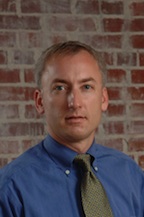

When: Thursday, February 23, 2012
Time: 6:00pm – 7:30 pm
Where: Charleston County Main Library, 68 Calhoun St, Charleston, SC 29401
1.5 AIA LU's (HSW/SD) -SC LLR Bldg Codes Council 1.5 HR (122-11-14)
Certificates of completion provided upon request.
Cost: Free
How can self-composting buildings be considered sustainable? In our rush to embrace green construction, we have at times overlooked durability and performance, assuming somehow that these traditional measures of good practice were inherent in the goodness of green. Physics hasn't changed. Durable construction still requires the conscious integration of appropriate detailing and execution into the design and construction of structures that we expect to last. Our hot, humid climate presents special challenges. Using local examples and case studies, this presentation will address common building conditions, highlight areas where consideration of durability is critical, and then review historical references to energy standards and weatherization as a means of learning from past practices. An open discussion on durability and green construction is scheduled following the presentation. Please bring questions and comments to enliven the debate.
1. Learn how past standards remain relevant for durable construction.
2. Develop successful strategies for integrating green construction and durability.
3. Evaluate assembly and product performance requirements as the relate to green construction and durability.
4. Identify critical details for ensuring durability.
 Mr. Elkin’s professional career includes more than seventeen years of experience in diagnostic evaluations, building repair design, construction project management and expert witness services. He has performed evaluations of roof, wall, fenestration, floor and foundation systems to identify moisture infiltration paths and determine the potential for moisture accumulation within these systems. Mr. Elkin has developed computer models and databases to simulate and track building failures. His work encompasses building assembly failures associated with inappropriate building practices and misinterpretation of building code requirements.
Mr. Elkin’s professional career includes more than seventeen years of experience in diagnostic evaluations, building repair design, construction project management and expert witness services. He has performed evaluations of roof, wall, fenestration, floor and foundation systems to identify moisture infiltration paths and determine the potential for moisture accumulation within these systems. Mr. Elkin has developed computer models and databases to simulate and track building failures. His work encompasses building assembly failures associated with inappropriate building practices and misinterpretation of building code requirements.
Mr. Elkin is also knowledgeable in the fields of mechanical systems. He has performed indoor air quality evaluations and thermal comfort studies in accordance with American Society of Heating Refrigerating and Air-Conditioning Engineers (ASHRAE) standards. Mr. Elkin has also designed mechanical systems including a ventilation network for the Smithsonian Institute in Washington, D.C. and a Department of Energy research facility. Furthermore, his mechanical background included a study of material properties and behavior. Utilizing this knowledge, Mr. Elkin investigates corrosion in buildings associated with moisture infiltration and improper material selections.
Mr. Elkin combines his knowledge of building materials, thermo-fluid science and mechanical equipment to diagnose complex moisture intrusion problems. These problems are often linked to fungal growth and deterioration of building components. Mr. Elkin works closely with Industrial Hygiene and Environmental Science professionals to assess the cause and extent of mold contamination. Using sound engineering principles, Mr. Elkin develops unique and cost-effective solutions to resolve moisture and fungal growth problems.
Mr. Elkin attended Rose-Hulman Institute of Technology, from which he received a Master of Science in Mechanical Engineering in 1993 and a Bachelor of Science in Mechanical Engineering in 1991.